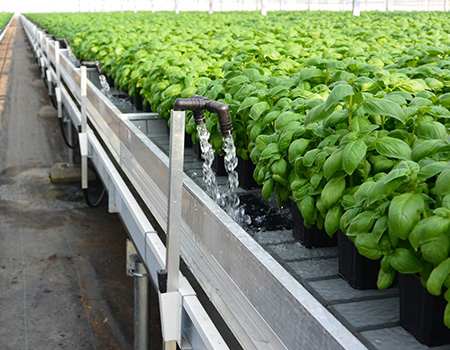Canada has a vast territory, but there is a significant contrast in terms of climate, geographical environment, and soil. The terrain of the country is high in the west and low in the east, with less rainfall in the west and a warmer climate, while the provinces in the eastern Atlantic are the opposite. Although the land area is large, only 7% of the land can be used for agricultural production. This is because it is in a high latitude, and a large part of the region is located in the Arctic Circle, with a cold climate.
How did Canada become a major agricultural country due to its cold climate and unfavorable agricultural development for crop growth? This is because the vast land and sparse population make Canada's per capita arable land vast. Mechanized and intensive production makes its agricultural production costs lower, and unique climate conditions and technological level ensure its quality. Canada's path to agricultural power can be said to have taken the lead.

In addition, Canada is one of the most developed countries in the world in terms of animal husbandry. The agricultural production unit in Canada is the farm, and a portion of the farm is also reserved for feed cultivation during agricultural production. The agricultural development in Canada is at a high speed, and the Canadian government also attaches great importance to agricultural development. Hydroponic cultivation is the most important part of Canadian technology agriculture, and it has a great reputation in agriculture.
The scale of farming in Canada is relatively large, and traditional grass cultivation is no longer sufficient to feed animals such as cows and sheep. Therefore, they are looking for a type of forage that is not affected by the weather and has high yield, and hydroponic fodder is one of them.

Container hydroponic fodder is produced by placing the fodder in a sealed and movable container. This planting method is not affected by the climate and environment, and can be produced continuously throughout the year. A 40 foot container weighing 6000KG can produce 1500 kilograms of fresh hydroponic fodder per day. Container agriculture is a new type of agricultural production method, and container hydroponic fodder is an important component of container agriculture.
The hydroponic fodder container adopts microcomputer automatic control, which can effectively achieve energy and water conservation. It is divided into many types, each with different sizes and weights, with smaller ones called containers and larger ones called plant factories. The hydroponic fodder container and hydroponic fodder factory each have their own advantages.

Advantages of Container Hydroponic Fodder System:
Firstly, hydroponic fodder has a short growth cycle, and usually the grass can fully mature after 6-7 days of growth. The height of mature grass can reach 20 centimeters. A 40 foot container can produce 1000kg of fresh grass per day, and a single container can produce 36500 kg per year.
Secondly, there are no restrictions on the production of grass on any site. The external dimensions of the container hydroponic system are equivalent to standard containers, making it easy to move and transport.
Thirdly, truly green and pollution-free plants. In a closed container, it can avoid the invasion of diseases and pests, so there is no need to spray agriculture without pesticide residues. Hydroponic cultivation is planted far from the soil to avoid heavy metal pollution, so the produced hydroponic fodder is also free from heavy metal pollution.
Many people are familiar with hydroponic agriculture, but few people know about hydroponic fodder. Canada treats forage as a very important crop and has invested significant financial and human resources in forage breeding, forage production, and market development of forage products.










